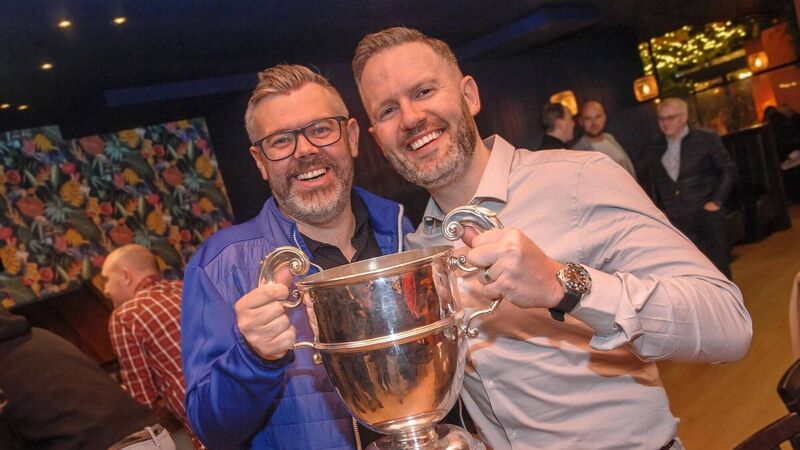Cork City's chairman on club's ownership, Colin Healy's budget and patient approach in top flight

Cork City chairman Declan Carey celebrates the club's First Division title with Damien Sreenan. Picture: Colm Lougheed
Three years ago, Cork City were staring into the abyss.
Boom and bust was the cycle of Cork soccer long before City was established in 1984, but the allure of daring to dream had again brought the name to the precipice of disaster.











